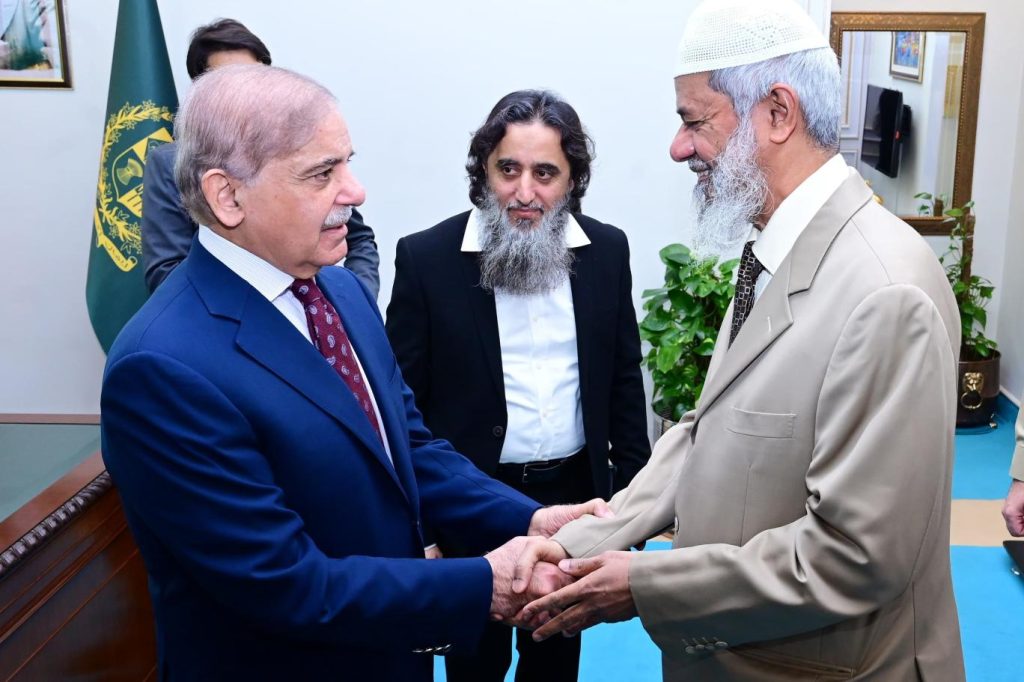
The Pakistani government’s decision to invite and host controversial Islamic scholar Dr. Zakir Naik has drawn widespread criticism from religious minorities, intellectuals, and women’s rights activists.
Dr. Naik, known for his hardline and regressive views on religion, women, and cultural practices, is viewed by many as a divisive figure whose presence could exacerbate Pakistan’s existing issues with religious intolerance.
His views on topics such as slavery, inhumane punishments, patriarchy, and polygamy align closely with those of extremist groups like the Taliban. He has been banned in several countries due to his inflammatory rhetoric
The Pakistani government’s endorsement of Naik’s ideology, particularly by Prime Minister Shehbaz Sharif, has further fueled concerns among minority groups. Many fear that such actions could exacerbate religious intolerance and insecurity within the country.
Critics argue that the government’s support for Naik could lead to a surge in religious extremism and discrimination against minorities. They warn that this could drive more minorities to leave Pakistan, further exacerbating the country’s social and political problems.
The invitation of Dr. Zakir Naik has sparked a national debate about the role of religion in society and the government’s responsibility to promote tolerance and inclusivity. As the country grapples with its past mistakes, many are concerned that the government’s latest move could have serious consequences for country’s social religious future.
Religious minorities, intellectuals, and advocates for women’s rights have spoken out, fearing that state patronage of figures like Dr. Naik could further erode Pakistan’s already fragile interfaith relations. Pakistan’s history of religiously motivated violence has led to an atmosphere of insecurity, particularly for religious minorities, some of whom feel pressured to leave the country due to rising intolerance.
Observers warn that embracing controversial figures like Dr. Zakir Naik may repeat the missteps of Pakistan’s past. Critics stress that, instead of endorsing divisive religious rhetoric, the state should focus on fostering tolerance and protecting minority rights. Many believe that further promoting such controversial figures will only fuel emigration among minorities, weakening Pakistan’s social fabric and its global image on human rights.